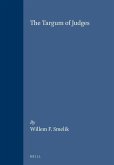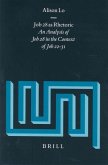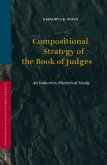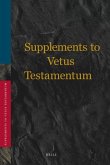This volume describes how the rhetorical devices used in Judges inspire its readers to support a divinely appointed Judahite king who endorses the deuteronomic agenda to rid the land of foreigners, to maintain inter-tribal loyalty to YHWH's cult, and to uphold social justice. Matters of rhetorical concern interpreted here include the superimposed cycle-motif and tribal-political schemata, concerns reflected in the plot-layers of each hero story, the force of narrative analogy for characterization, the strategy of entrapment which foreshadows portrayals of Saul and David in 1 Samuel, and the relation between Judges' implied situation of composition and its compiler's intention. In addition to offering new insights into the rhetorical strategy of the Judges compiler, this book illustrates a new method for understanding how plot-layered stories work.
Hinweis: Dieser Artikel kann nur an eine deutsche Lieferadresse ausgeliefert werden.
Hinweis: Dieser Artikel kann nur an eine deutsche Lieferadresse ausgeliefert werden.








